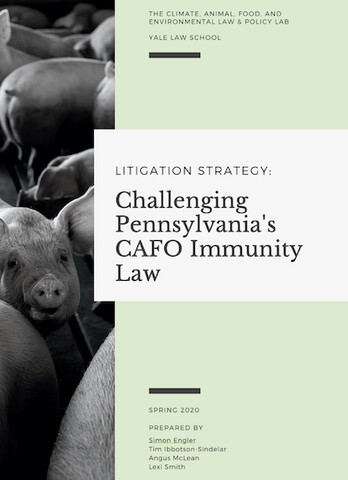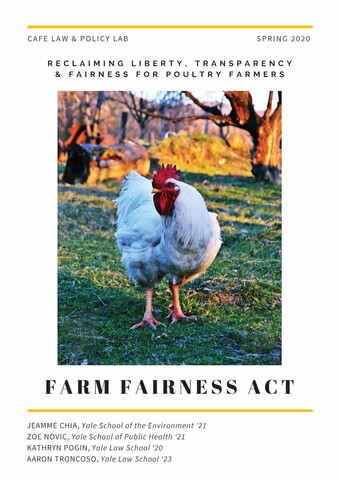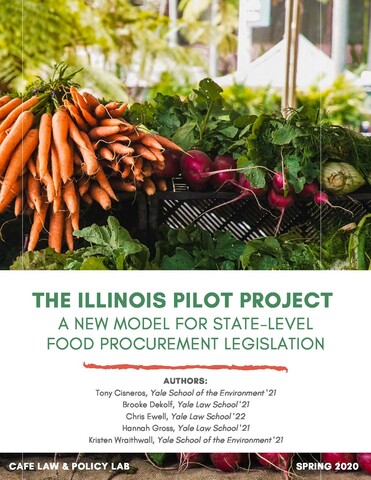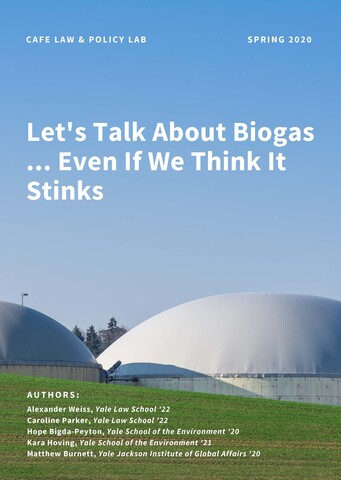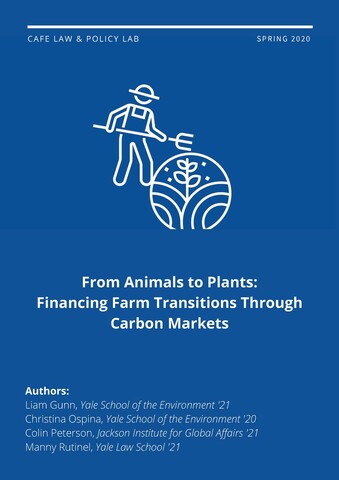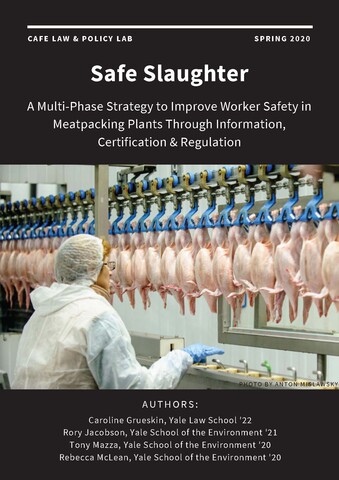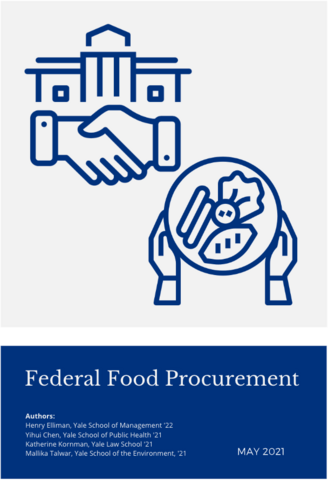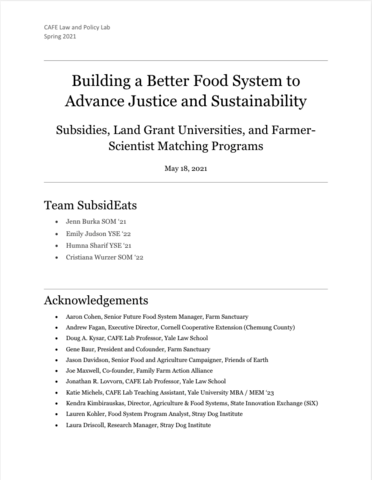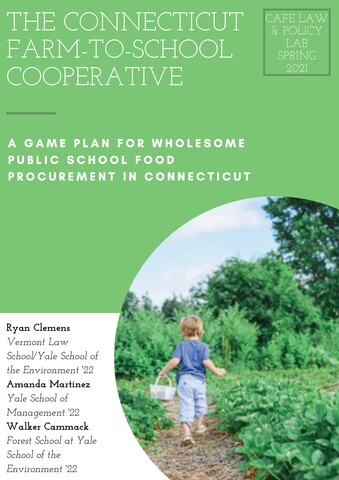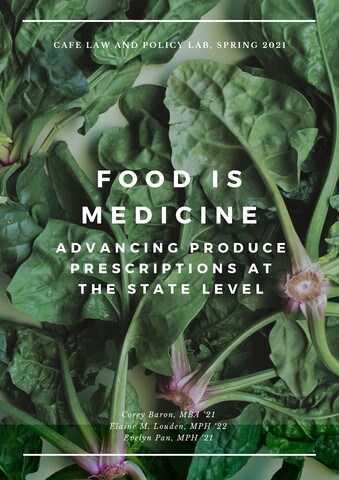- Doug Kysar, Panelist, "Alternative Futures: Reorientation and Renewal," Global Observatory for Genome Editing Summit, May 23, 2025. Watch the recording.
- Viveca Morris, Panelist, "Business & Biodiversity: Making Yale More Sustainable and Bird-friendly,” Yale School of Management, April 2025.
- Viveca Morris, “Bird Friendly Futures: Preventing Bird Collisions with Better Design” (with Meredith Barges), Audubon Society of Rhode Island, March 2025.
- Viveca Morris, “The Yale Bird-Friendly Building Initiative,” Bird Safe Campus Summit, February 2025
- Doug Kysar, panelist offering reflections and concluding remarks at Columbia Law School’s Attribution Science and Climate Law Conference, January 10, 2025. Watch the recording.
Laurie Sellars, “Beyond the Lab: What We Owe Laboratory Animals Outside of Experiments,” iCLEAR Speaker Series, November 11, 2024.
Watch the recording.Laurie Sellars and Becca Franks featured on the
BBC's program
Science in Action to discuss their paper, "How mariculture expansion is dewilding the ocean and its inhabitants," October 17, 2024.
- Viveca Morris and Daina Bray (with Matthew Hayek and Peter Lehner), “Emerging Strategies to Hold Meat and Dairy Companies Accountable for Climate Harms," Yale Planetary Solutions Climate Week Summit, September 2024.
- Viveca Morris, Panelist, "Big Meat and Dairy narratives to derail climate action: can you tell fake from fact?,” PlantWorks Food Day, NYC Climate Week, September 2024.
Laurie Sellars, featured guest on
AMA Journal of Ethics' podcast
Ethics Talk to discuss her article with Jeff Sebo, "“How Should Treatment of Animals Beyond the Lab Factor Into Institutional Review?” September 2024.
Jonathan Lovvorn, featured guest on
The Dispatch's podcast
Advisory Opinions episode to discuss the Supreme Court case regarding Proposition 12 with Humane Society of the United States Vice President for Farm Animal Protection Josh Balk, October 13, 2022.
Doug Kysar, featured guest on
Life on the Ark podcast, Part 5 "Rebuilding the Ark" and Part 8 "Prince Sattva and the Hungry Tiger," November 3 and December 19, 2022.
Daina Bray, "The CDC's Dog Import Ban: Legal Issues and Next Steps to Protect the Public, Animals, and International Rescue Efforts," American Bar Association, December 6, 2021.
Daina Bray, "Bar None: The American Bar Association's Role in Expanding Justice for Animals," 29th Annual Animal Law Conference, October 17, 2021.
Viveca Morris, "How Climate Change Impacts Farm Animal Welfare," American University, March 18, 2021.
Jonathan Lovvorn, Innovating in a Climate Crisis: Issues Relating to Food Policy, Safety, and Ecosystem Market Tools, Lewis & Clark Law School, March 13, 2021.
Doug Kysar, The Grande-Synthe Decision: A Conversation about National Climate Commitments, Accountability, and the Role of Courts, Yale Law School, February 24, 2021.
Doug Kysar, It's Later Than We Think: Climate Change and the Coming Transformation, Yale School of Management, November 20, 2020.
Jon Lovvorn, Animals Affected by Climate Change, Animals Climate & Health Webinar Series, November 20, 2020.
Doug Kysar, Science and Democracy Seminar, Harvard University Center for the Environment, November 10, 2020.
Doug Kysar, Virtual Book Launch: Climate Change Litigation in the Asia Pacific, National University of Singapore, October 28, 2020.
Jon Lovvorn, Food Policy and Purchasing Innovation in a Climate Crisis, Animal Law Conference, October 25, 2020.
Jon Lovvorn, The Sustainability Myth--Tackling the Climate, Animal Welfare, Food Security, & Environmental Costs of Agriculture, Forward Food Conference, October 16, 2020.
- Viveca Morris, "Pandemics Show What We're Doing to Animals and the Planet is Killing Us Too." Lectures for Yale Young Global Scholars Program, July 2020.
- Jonathan Lovvorn, Animal Rights Law: For or Against—an Interview with Jonathan Lovvorn. Cambridge Center for Animal Rights Law, June 2020.
- Doug Kysar, "Sustainability in the Post-Covid Economy," panelist, Center for Business & the Environment at Yale, May 15, 2020.
- Doug Kysar, "Charles A. Reich - A Commemoration of His Life and Legacy," Tuoro Law Center, January 30, 2020.
- Doug Kysar, featured guest on Yale Environmental Dialogue podcast episode, "Protecting the Rights of Kids," December 16, 2019.
- Doug Kysar, featured guest on the podcast "Energy Tradeoffs," December 9, 2019.
- Doug Kysar and Jon Lovvorn, featured guests on the podcast "When We Talk About Animals," November 19, 2019.
- Viveca Morris, "Impacts of USDA's Increased Pork and Poultry Linespeeds," panel moderator, Government Accountability Project's Food Integrity Campaign Conference, November 15, 2019.
- Doug Kysar, Climate Change and Legal Education, "Amicus Brief" talk at Yale Law School Alumni Weekend, October 18, 2019.
- Jonathan Lovvorn, Canaries in the Coal Mine: Animals, the Climate Crisis, and the Future of Public Interest Law, Yale Law School, October 8, 2019.
- Jonathan Lovvorn, Animal Ethics, Climate Policy, Consumer Demand, Alternative Protein Technology, and the Future of the American Industrial Animal Agriculture Model, International Symposium on Farm Animal Welfare Science and Human Obligations (keynote), Griffith University, August 19, 2019.
- Doug Kysar, Counterfactual Carbon and the Neoliberal Imagination, Multiple Carbons: Workshop, Harvard University, April 6, 2019.
- Doug Kysar, Animals and Climate Change, Natural Resources and Conservation Management Conference, University of Oklahoma College of Law, Norman, Oklahoma, April 5, 2019.
- Doug Kysar, Panelist, Fire and Ice: The Shifting Narrative of Climate Change, University of California-Irvine, Irvine, California, February 9, 2019.
- Jonathan Lovvorn, featured guest on Our Hen House Podcast: The Cases That Saved the Sales Bans, January 30, 2019.
- Jonathan Lovvorn, Climate Change and Animals, Harvard Law School, 2018 (video below).
- Jonathan Lovvorn, featured guest on Our Hen House Podcast: The Case Against Factory Farm Air Pollution, July 26, 2017.
- Doug Kysar, Are ‘They’ ‘We’?, Animal Law and Environmental Law: Building Collaboration, Yale Law School, November 5, 2016.
- Doug Kysar, Living with Owning: Property, Community, and the Zanesville, Ohio Animal Massacre, Harris Lecture, Indiana University Maurer School of Law, April 6, 2016 (video below).

